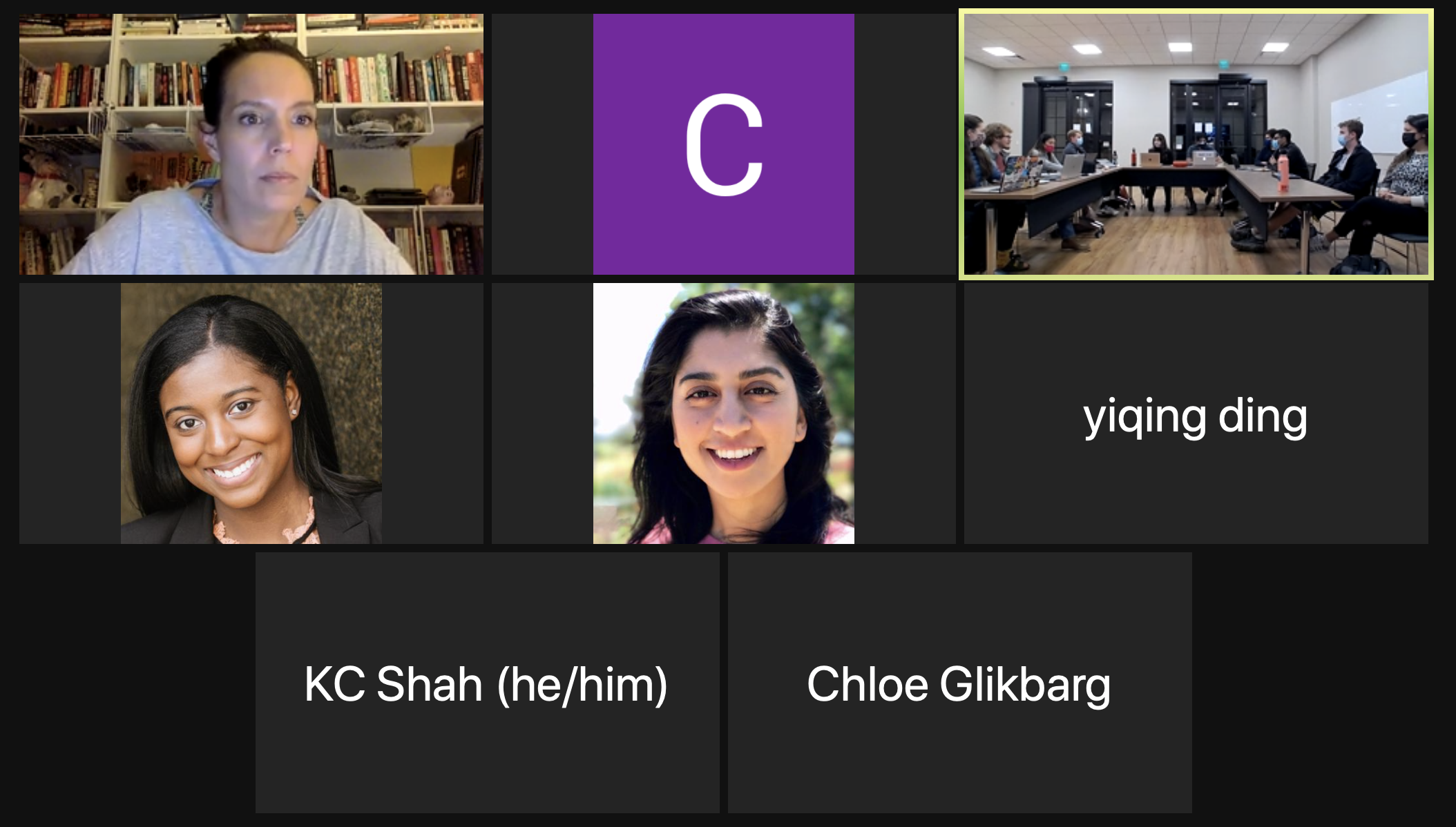Graduate Student councilors said that the University needs to distribute narcan and fentanyl kits to the student body to prevent overdoses at Wednesday’s Graduate Student Council (GSC) meeting.
While the University has previously been hesitant to take a leadership position on fentanyl kits for “liability reasons,” Jarita Greyeys, a fourth-year PhD student in education, said she believes that its “something that we can take a leadership position on, even if it’s just providing opportunities for people to be trained on narcan administrating.”
GSC councilor Tim Vrakas ’21 M.S. ’22 echoed the need for students to have access to these kits. Vrakas said that it would be “extremely cheap” to buy narcan kits in bulk to provide to students, based on his own research into the topic.
As a resident assistant during the year in which a student died from an overdose, GSC councilor Chloe Glikbarg ’21 M.S. ’22 said that she and other staff considered buying narcan kits themselves out of their personal funds. She added that there is a lot of interest among residential assistants to create a stipend for students to buy narcan kits themselves and to offer them training for using the kits.
ASSU President Christian Giadolor ’22 also met with the GSC to discuss a student petition that highlights accessibility issues related to in-person classes and advocates for a better hybrid learning model for students.
“The petition would suggest that the legislative bodies at the ASSU would pass a joint resolution that would be brought forth to the Faculty Senate,” Giadolor said. “However, the Vice Provost for Undergraduate Education (VPUE) had some concerns about the language for the petition.”
The VPUE stated that the language used in the petition is too broad, according to Giadolor. The petition applies to all classes at Stanford, and VPUE did not feel that providing a hybrid model for certain in-person classes, such as fitness or music classes, would be beneficial to both instructors and students.
VPUE also noted that the University’s COVID-19 case count has been “relatively low,” and the number of students who have missed classes so far this quarter is not far off from the number of students who have had to miss classes pre-pandemic, Giadolor said.
Vice Provost for Undergraduate Education Sarah Church has offered to work with both the Undergraduate Senate (UGS) and the GSC to help make a joint resolution that would best benefit students facing barriers due to COVID-19, according to Giadolor. The UGS also hopes to work with Church to better communicate the resources and accommodations available for students who are experiencing COVID-19 related difficulties. The GSC reaffirmed its commitment to working with VPUE and the UGS to provide the necessary accommodations for students struggling with the virus.
Jocelyn Breeland, Executive Director of Strategic Communications for ResEd, also shared updates with the GSC about the Escondido Village Graduate Residences EVGR packagemail center. Graduate students who have a smart locker will now be able to indicate to the packagemail center if they want to have their packages be placed in a lower locker. Last weekend, the GPC also returned five parking spaces for graduate students to use, she added.
Graduate Student councilors also met with the Nominations Committee Administrative Chair Haleigh Quinn ’22 to advocate for increased graduate student representation on the Cardinal Care Advocacy Committee.
The Cardinal Care Advocacy Committee was established to work to lower the cost of Cardinal Care, the University’s healthcare plan, for student-dependents. However, councilors criticized the nominations committee process for having previously formed a committee to address issues related to Cardinal Care, but failing to fully set up any meetings for that committee. GSC member and second-year Aeronautics and Astronautics PhD student Jason Andersan said that the committee has to be set up “right now if we want to actually make a change for next year.”
Applications for students to serve on the Cardinal Care Advocacy Committee will open in early winter quarter, according to Quinn. The student selection process will focus on five categories: preparedness, motivation for serving community involvement, diversity and inclusion, advocacy and leadership.
It has been difficult to recruit graduate students to serve on nomination committees in the past due to trouble with accessing graduate student mailing lists, according to Quinn. Quinn also noted that nominations commissions have previously asked for more undergraduate representation, which she believes contributed to a lack of graduate students on nomination committees. Moving forward with this committee, the GSC is pushing for more graduate student representation and involvement.
This article has been corrected to more accurately reflect the changes made at the packagemail center. The Daily regrets this error.
